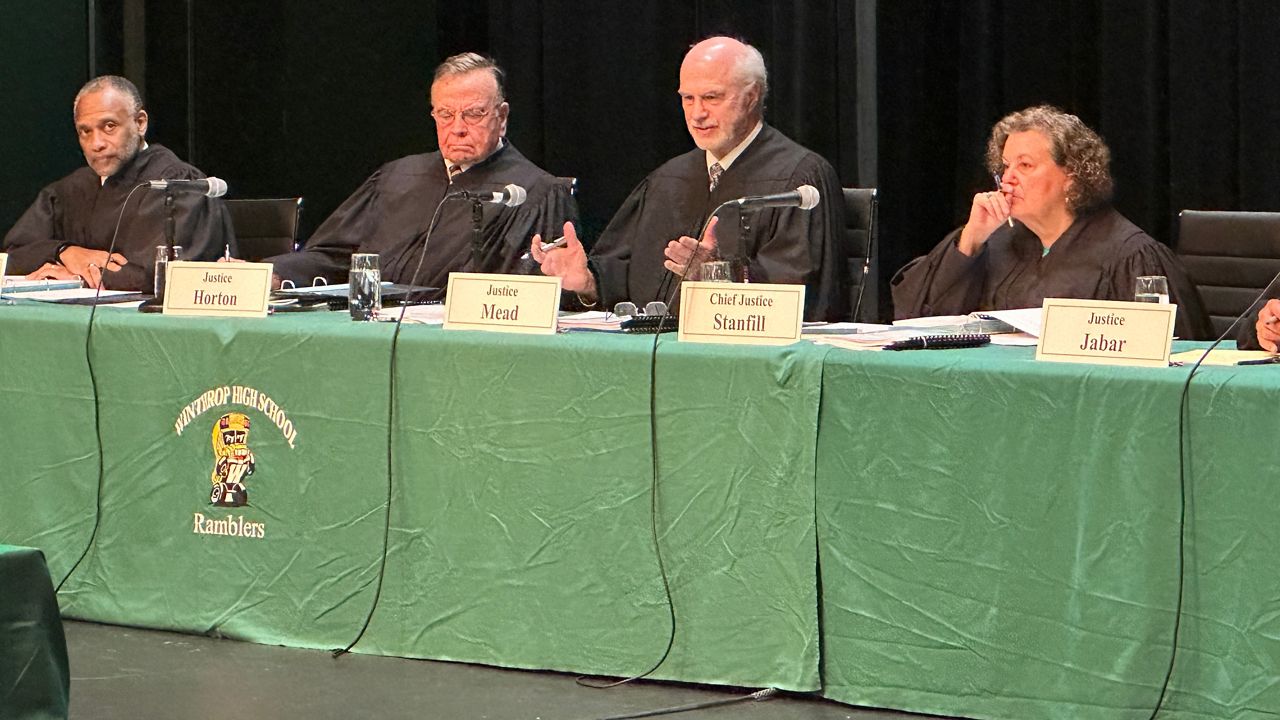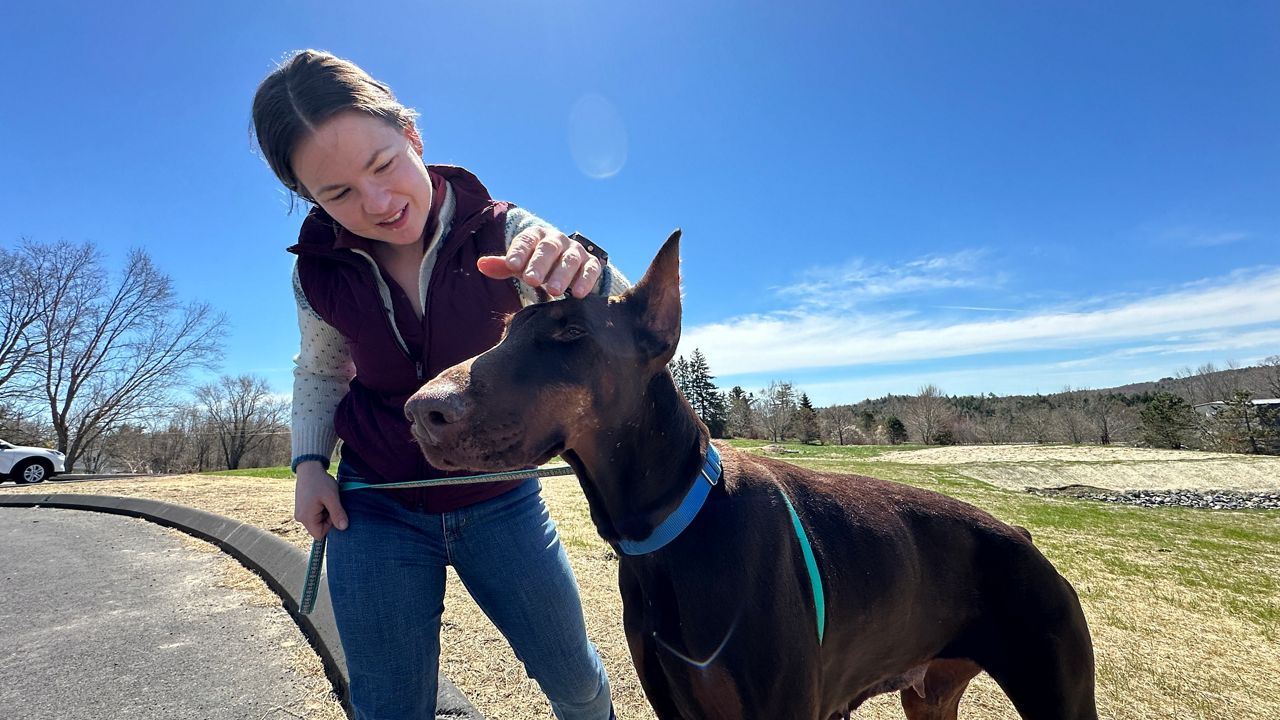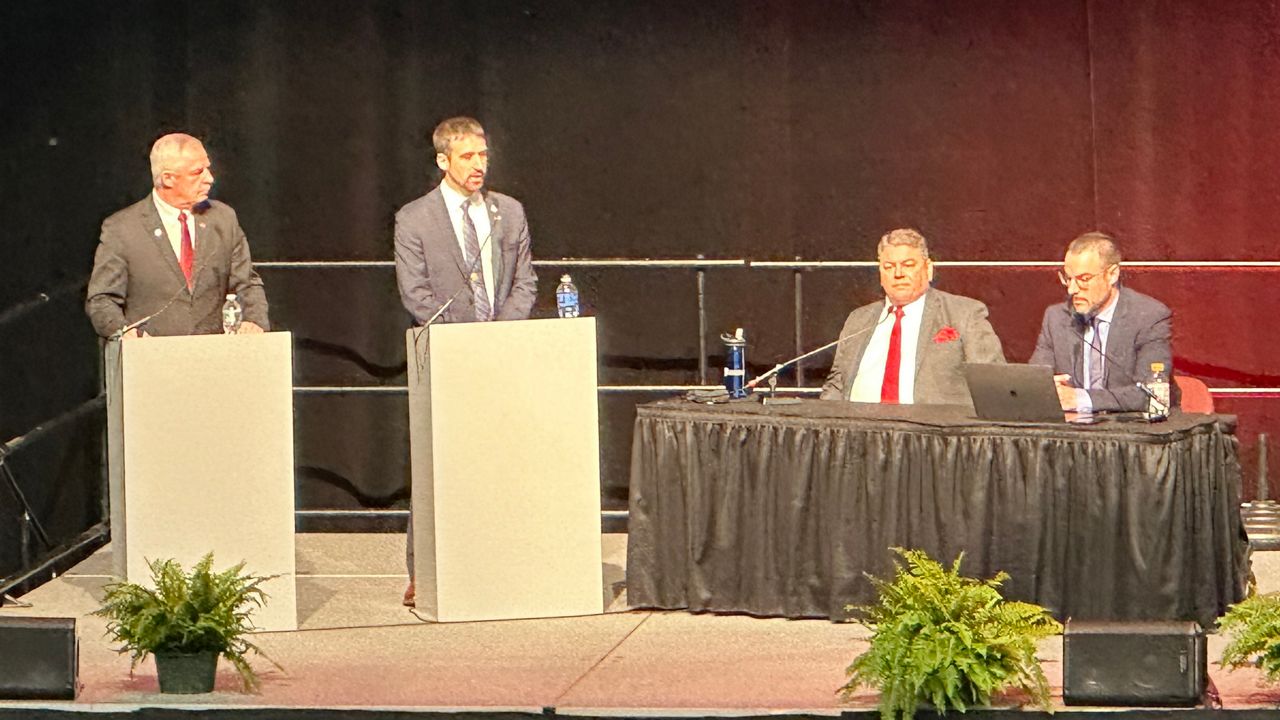A 2021 constitutional amendment guaranteeing a right to food means the state can no longer prohibit Sunday hunting, an attorney for a Readfield couple told the state’s highest court Wednesday.
“Under a straightforward reading of this new constitutional amendment, Maine’s statutory ban on Sunday hunting is unconstitutional as applied to those who hunt for food,” Pamela Lee, an attorney for Virginia and Joel Parker said.
The Maine Supreme Judicial Court heard arguments on the case in front of Winthrop High School students as part of their annual effort to spread understanding about the third branch of government.
And while Lee argued that voters’ adoption of the Right to Food Amendment includes the right to hunt, the Maine Office of the Attorney General said “all acts by the Legislature are presumed constitutional.”
“Here the question before you is can Maine’s longstanding ban on Sunday hunting be read consistent with our recently adopted Right to Food Amendment?” attorney Paul Suitter said. “The answer is yes.”
Suitter said that’s because when lawmakers considered the amendment, they specifically discussed whether it would affect any existing hunting laws.
“Despite the plaintiff’s insistence, this constitutional amendment simply does not touch upon hunting,” he said.
The amendment, which passed with 61% of voter support, states that “all individuals have a natural, inherent and unalienable right to grow, raise, harvest, produce and consume the food of their own choosing for their own nourishment, sustenance, bodily health and well-being.”
In their original court filing, the Parkers’ argued that they have five children and rely on deer hunting to help feed their family. They said their schedules limit their ability to hunt and that the new amendment enshrines their right to legally harvest food for their own sustenance.
The justices peppered both attorneys with multiple questions during the proceeding, trying to tease out the difference between harvesting and hunting and questioning the legislative rationale for banning Sunday hunting.
For years, the Legislature has grappled with whether to allow hunting on Sundays. Only Maine and Massachusetts continue to ban the practice, said Jared Bornstein, executive director of Maine Hunters United for Sunday Hunting.
“It’s clear that harvest can mean hunt and, in this case, does mean hunt,” Bornstein told reporters after the hearing. “Is hunting protected in the amendment? The clear answer is yes.”
Chief Justice Valerie Stanfill told the students that the court will rule in “due course,” which a court spokeswoman said typically means two to three months.
Students who listened to the case said they appreciated being able to observe the process in person.
“It was really interesting to watch,” Samantha Cruz, a 16-year-old junior said. “I’ve seen court cases on TV, but I am appreciative of the opportunity.”
Giving the students a chance to see appellate law in action, something rarely shown on television, is part of the reason the justices travel to high schools each year, Stanfill said in a statement.
“We hope that providing real-time exposure to the third branch of government supplements the students’ civics education and exposes Maine learners to the concept of justice,” she said.








)